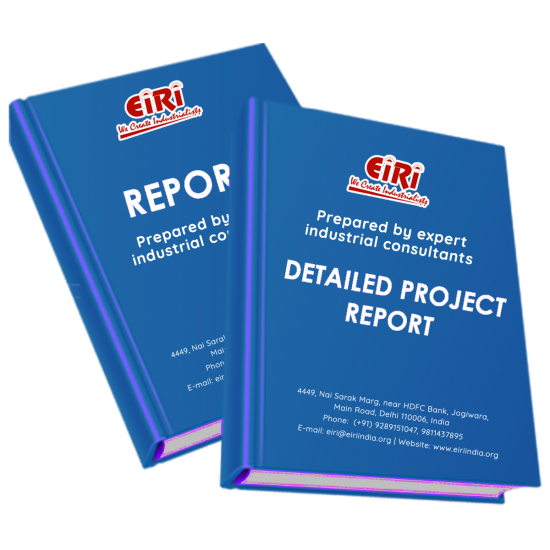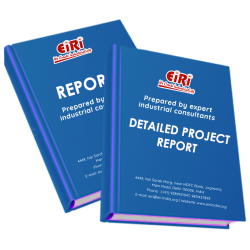Detailed Project Report on ayurvedic pain balm ointment, cream & oil manufacturing

- More than 40 years of experience
- Managed by expert industrial consultants
- ISO 9001-2015 Certified
- Registered under MSME, UAM No: DL01E0012000
- 24/5 Research Support
Get your quesries resolved from an industry expert. Ask your queries before report or book purchase. - Custom Research Service
Speak to the our consultant to design an exclusive study to serve your research needs. - Quality Assurance
All reports are prepared by highly qualified consultants & verified by a panel of experts. - Information Security
Your personal & confidential information is safe & secure.
AYURVEDIC PAIN BALM OINTMENT, CREAM & OIL MANUFACTURING [3574]
Balm is a popular Asian medicine and a wide assortment can be found at any local market or pharmacy. Traditionally, balm is used for skin problems as well as muscle, bone, ligament sprains, strains, and pains. With the exception of (naam mun) leang pa, the components for this formula can be purchased in most markets throughout Thailand. The leang pa is derived from mountain goats that live in northern Myanmar. The (naam mun) gnaa and (naam mun) plou are used in daily cooking and are readily available. Leang pa is used to help bruising and swelling and in conjunction with gnaa to help bone pain and healing. Gnaa is more effective when in conjunction with leang pa. Phim sen is used to protect the body from any side effects of the other constituents and as a very effective means of reducing swelling. Karabun is used to reduce bruising, bleeding, and to facilitate the uptake of the medicine through the skin. Also, the ragum is effective for external pain. The Balm Formula is mainly used for muscle, tendon, ligament, and bone pain and for bone healing. It is also used for abrasions, bruises, insect bites, the common cold (applied to chest), and for headaches (applied to temple). The Balm Formula is often adjusted for individual needs. The ragum or leang pa can be increased for muscle, tendon, ligament or bone pain, the plou or gnaa (sesame) can be increased for more skin care protection, and salet phangphon (cobra tongue), waan raang chute (purple allamanda), phlu (betel) and ta khrai hom (lemon grass) can be added for insect bites, poisoning, or detoxification. Availability is also a factor because of the leang pa - an additional seventy-five ml of plou can be substituted when leang pa is not available. Using leang pa makes the balm hotter to the touch, which many patients find appealing. The basis of Ayurvedic therapeutics rests on the five well defined pharmacological principles of Rasa, Guna, Virya, Vipaka and Prabhava-just mentioned above. In a sense, these five principles are, as it were, the `Panchasheel' or five pillars of pharmacology on which is built the edifice of Ayurvedic Therapeutics. These five principles, as a rule, cover the entire range of diseases-whether of constitutional character or microbiological origin. The healthcare market in India is evolving at a rapid pace. As per estimates, it is one of the fastest growing industries with an estimated CAGR of 23% from 2015 to 2020, and is expected to be a $280 billion market by 20201. Rising income levels, growing geriatric population, greater penetration of health care in rural settings, increasing health awareness with an emphasis on ‘preventative healthcare’, is expected to enhance the demand for Healthcare services. India’s National Health Policy aims at achieving Universal Health Coverage and delivering quality healthcare to all at an affordable cost. The policy aims at providing a comprehensive primary health package which includes major communicable, non-communicable and chronic diseases, geriatrics, palliative and rehabilitative care. For a vast country like India, to achieve this goal with just the modern medicine system in place is a herculean task. Modern therapies have its own drawbacks of burgeoning costs, quality of life issues, and inability to prevent and cure many diseases. However, Ayurveda can definitely change this outlook of healthcare delivery by getting integrated into mainstream healthcare. As shown in Figure 1, promoting Ayurveda as a mainstream therapy approach can be used to bridge the burgeoning gap between demand and supply by primarily focusing on secondary and tertiary prevention of diseases. In addition, the substantial opportunity in promotive health and restoration of functional health is best addressed by Ayurveda. Ayurveda management is based on the concept of root-cause diagnosis and management. As shown in Figure 2, it treats not only the physical aspects of the disease but also treats and manages the root cause of the problem, in contrast to the prevalent practice of mere symptom management. It goes beyond just being a curative system of medicine to being a preventive and promotive healthcare system as well. Classical Ayurveda encompasses all attributes of a mature and complete medical science encompassing anatomy, physiology, pharmaceutics, disease causation-evolution, and disease management. The aetio-pathogenesis of disease is established through a structured process of compilation of disease signs and symptoms, medical history, and clinical examination. Thereafter, a wholebody, systemic healing process attempts to restore homeostasis or good health by reversing the aetio-pathogenesis for not only disease cure but also for sustained wellbeing in body, mind and soul dimensions. This comprehensive therapeutic approach or ‘Chikitsa’ is uniquely personalised, and includes one or more of diet-lifestyle-medicinetherapy. Ayurveda’s principles are universal and time tested in its application to diseases prevalent in the 21st century, across the world.
COST ESTIMATION
Plant Capacity 14332 Bottle & Tube/Day
Land & Building (700 sq.mt) Rs. 1 Cr
Plant & Machinery Rs. 31 Lac
Working Capital for 2 Months Rs. 1.17 Cr
Total Capital Investment Rs. 2.56 Cr
Rate of Return 35%
INTRODUCTION
CONSTITUENTS:
OVERVIEW OF INDIAN AYURVEDIC INDUSTRY
AYURVEDA: ARE WE MISSING THE POINT?
THE ECONOMIC GROWTH POTENTIAL
AYURVEDA PRODUCTS:
AYURVEDA SERVICES:
UNLOCKING VALUE
VISION ROADMAP TO ACHIEVE $9 BILLION BY 2022
ESSENTIAL OILS FOR PAIN RELIEF COMPOSITION
1. PEPPERMINT OIL
2. ROSEHIP OIL
3. LAVENDER OIL
4. EVENING PRIMROSE OIL
5. FLAXSEED OIL
6. CLARY SAGE OIL
7. EUCALYPTUS OIL
8. ROSEMARY OIL
9. JUNIPER BERRY OIL
MANUFACTURING LICENSE FOR AYURVEDIC/HERBAL MEDICINES
BELOW ARE 3 TYPES OF MANUFACTURING LICENSES ISSUED BY AYUSH:
BOTANICAL DRUG GROUP
I. PUSPA VARGA (FLOWERS HAVING MEDICINAL VALUE
II. PHALA VARGA (FRUITS HAVING MEDICINAL VALUE)
III. SHAKA VARGA (LEAVES/WHOLE HERB HAVING MEDICINAL VALUE)
IV. PHALA SHAKA VARGA (NON-DESSERT FRUITS HAVING MEDICINAL VALUE)
V. KANDA SHAKA VARGA (UNDERGROUND PARTS LIKE RHIZOME,
BULBS, TUBERS ETC. HAVING MEDICINAL VALUE)
VI. HARITAKYADI VARGA
VII. GUDUCHYADI VARGA
VIII. KARPURADI VARGA (AROMATIC PLANTS HAVING MEDICINAL VALUE)
IX. VATADI VARGA
SPECIFICATIONS AND LEGAL ASPECTS
FORMULATION OF AYURVEDIC PAIN BALM (LIKE AMRUTANJAN)
FORMULATION-1
RAW MATERIAL & THEIR SOURCES
FORMULATION OF AYURVEDIC PAIN BALM OINTMENT
FORMULATION OF AYURVEDIC PAIN RELIEF CREAM
FORMULATION OF AYURVEDIC PAIN RELIEF OIL
FORMULATION OF PAIN RELIEF OIL
MANUFACTURING PROCESS OF AYURVEDIC PAIN BALM OINTMENT
MANUFACTURING PROCESS OF AYURVEDIC PAIN BALM CREAM
MANUFACTURING PROCESS OF AYURVEDIC PAIN RELIEF OIL
PROCESS IN DETAILS
TAILA & ABHYANJANA OR MALHAM:-
GENERAL METHOD OF PREPARATION:-
PROCESS FLOW SHEET
AYURVEDIC PAIN BALM (ZANDU TYPE BALM) (FOR HEADACHE, BODY
PAIN & COLD)
FORMULATION-1
FORMULATION-2
FORMULATION-3
PLANT LAYOUT
MANUFACTURERS AND EXPORTERS
SUPPLIERS OF RAW MATERIALS
SUPPLIERS OF PLANT AND MACHINERY
BOILERS
BOTTLE FILLING MACHINES
STORAGE VESSEL
MIXER
APPENDIX – A:
01. PLANT ECONOMICS
02. LAND & BUILDING
03. PLANT AND MACHINERY
04. OTHER FIXED ASSESTS
05. FIXED CAPITAL
06. RAW MATERIAL
07. SALARY AND WAGES
08. UTILITIES AND OVERHEADS
09. TOTAL WORKING CAPITAL
10. TOTAL CAPITAL INVESTMENT
11. COST OF PRODUCTION
12. TURN OVER/ANNUM
13. BREAK EVEN POINT
14. RESOURCES FOR FINANCE
15. INSTALMENT PAYABLE IN 5 YEARS
16. DEPRECIATION CHART FOR 5 YEARS
17. PROFIT ANALYSIS FOR 5 YEARS
18. PROJECTED BALANCE SHEET FOR (5 YEARS)
How to Make Project Report?
Detailed Project Report (DPR) includes Present Market Position and Expected Future Demand, Technology, Manufacturing Process, Investment Opportunity, Plant Economics and Project Financials. comprehensive analysis from industry covering detailed reporting and evaluates the position of the industry by providing insights to the SWOT analysis of the industry.
Each report include Plant Capacity, requirement of Land & Building, Plant & Machinery, Flow Sheet Diagram, Raw Materials detail with suppliers list, Total Capital Investment along with detailed calculation on Rate of Return, Break-Even Analysis and Profitability Analysis. The report also provides a birds eye view of the global industry with details on projected market size and then progresses to evaluate the industry in detail.
We can prepare detailed project report on any industry as per your requirement.
We can also modify the project capacity and project cost as per your requirement. If you are planning to start a business, contact us today.
Detailed Project Report (DPR) gives you access to decisive data such as:
- Market growth drivers
- Factors limiting market growth
- Current market trends
- Market structure
- Key highlights
Overview of key market forces propelling and restraining market growth:
- Up-to-date analyses of market trends and technological improvements
- Pin-point analyses of market competition dynamics to offer you a competitive edge major competitors
- An array of graphics, BEP analysis of major industry segments
- Detailed analyses of industry trends
- A well-defined technological growth with an impact-analysis
- A clear understanding of the competitive landscape and key product segments
Need Customized Project Report?
- Ask for FREE project related details with our consultant/industry expert.
- Share your specific research requirements for customized project report.
- Request for due diligence and consumer centric studies.
- Still haven't found what you're looking for? Speak to our Custom Research Team
About Engineers India Research Institute:
Our Approach
- Our research reports comprehensively cover Indian markets (can be modified as per your country), present investigation, standpoint and gauge for a time of five years*.
- The market conjectures are produced on the premise of optional research and are cross-accepted through associations with the business players
- We use dependable wellsprings of data and databases. What's more, data from such sources is handled by us and incorporated into the report
Why buy EIRI reports?
- Our project reports include detailed analysis that help to get industry Present Market Position and Expected Future Demand.
- Offer real analysis driving variables for the business and most recent business sector patterns in the business
- This report comprehends the present status of the business by clarifying a complete SWOT examination and investigation of the interest supply circumstance
- Report gives investigation and top to bottom money related correlation of real players/competitors
- The report gives gauges of key parameters which foresees the business execution






















